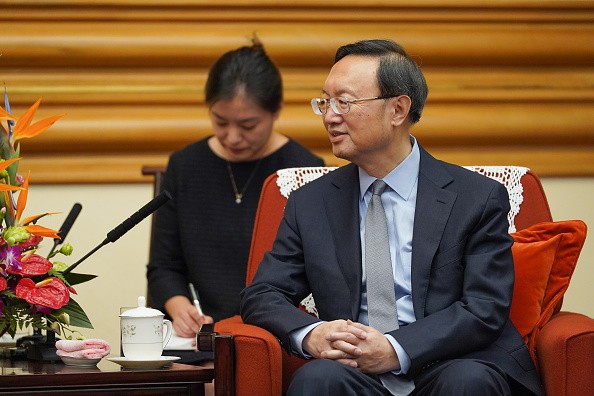
Yang Jiechi, China's top diplomat, in his first phone call to the new U.S. Secretary of State Antony Blinken, once again blamed Washington for plunging bilateral relations to their lowest point in decades, dismissing foreign criticism of Beijing's Xinjiang and Hong Kong policies.
From the statement released by the Chinese Foreign Office, Yang Jiechi, the top foreign policy advisor to Xi Jinping, told Blinken during their Friday call that the U.S. should "correct recent mistakes, and work with China to promote the healthy and stable development of China-US relations by upholding the spirit of non-conflict, non-confrontation, mutual respect, and win-win cooperation,"
Yang, the China top diplomat, also stressed on his statement that, as well as political structures and developmental directions of their own choice, both sides should respect the core interests of the other, as he emphasizes.
"Each side should focus on taking care of its own domestic affairs. China will firmly continue down the path of socialism with Chinese characteristics and no one can stop the great rejuvenation of the Chinese nation," Yang, china's top diplomat, added.
READ: Biden Announces US Will No Longer Be Involved in the Saudi-Yemen Conflict, To Pull Out US Support
Under the U.S. Presidency of Donald Trump, relations between Washington and Beijing were frequently fractious, which includes disputes over trade, technology, regional security, and human rights concerns.
The latest remarks from President Joe Biden's new administration suggest that there will only be a little in the road of pullback. In the president's speech on Thursday, Biden described China as the United States' "most serious competitor" and with very keen plans to face Beijing's "attack on human rights, intellectual property, and global governance."
According to the Chinese statement, Yang highlighted many significant sources of continued friction between the two countries, including Taiwan, during the phone call Friday.
Though the two sides have been ruled independently for more than seven decades, Beijing asserts absolute sovereignty over Taiwan, a democratic island of nearly 24 million citizens.
ALSO READ : Biden Does Not Want Trump To Receive Intelligence Briefings, Claims He Might 'Slip and Say Something'
Why does China's top diplomat blame Washington?
Since Biden took office, Beijing has stepped up military activity around Taiwan. On several occasions, they have sent combat aircraft, including H-6K bombers, into Taiwan's air defense identification zone. It was seen as a clear warning to the new U.S. administration that China would not yield sovereignty over the island.
On Thursday, during the Biden administration, the U.S. Navy was able to send a guided-missile destroyer through the Taiwan Strait. The first time a U.S. warship had passed through the waterway that separates China and Taiwan.
Yang also warned Blinken that China's internal affairs are related to Hong Kong, Xinjiang, and Tibet. The nation does not tolerate any foreign intervention, the Chinese statement said.
The former Trump administration has agreed that China is committing genocide in Xinjiang against Uyghur Muslims and ethnic and religious minority communities, a designation that Blinken has said he agrees.
Previously, the U.S. State Department reported that up to two million Uyghurs, as well as members of other Muslim minority groups, have been detained in the region's sprawling network of internment camps.
Blinken stressed that the U.S. would continue to stand up for human rights and democratic principles, particularly in Xinjiang, Tibet, and Hong Kong. Blinken urged China to join the international community in condemning the military coup in Myanmar, according to a reading of Friday's call from the U.S. State Department.
The U.S. statement also claimed that Blinken reaffirmed that the U.S. would work with its partners in keeping China in the account for its "efforts to threaten stability in the Indo-Pacific, including across the Taiwan Strait,"








